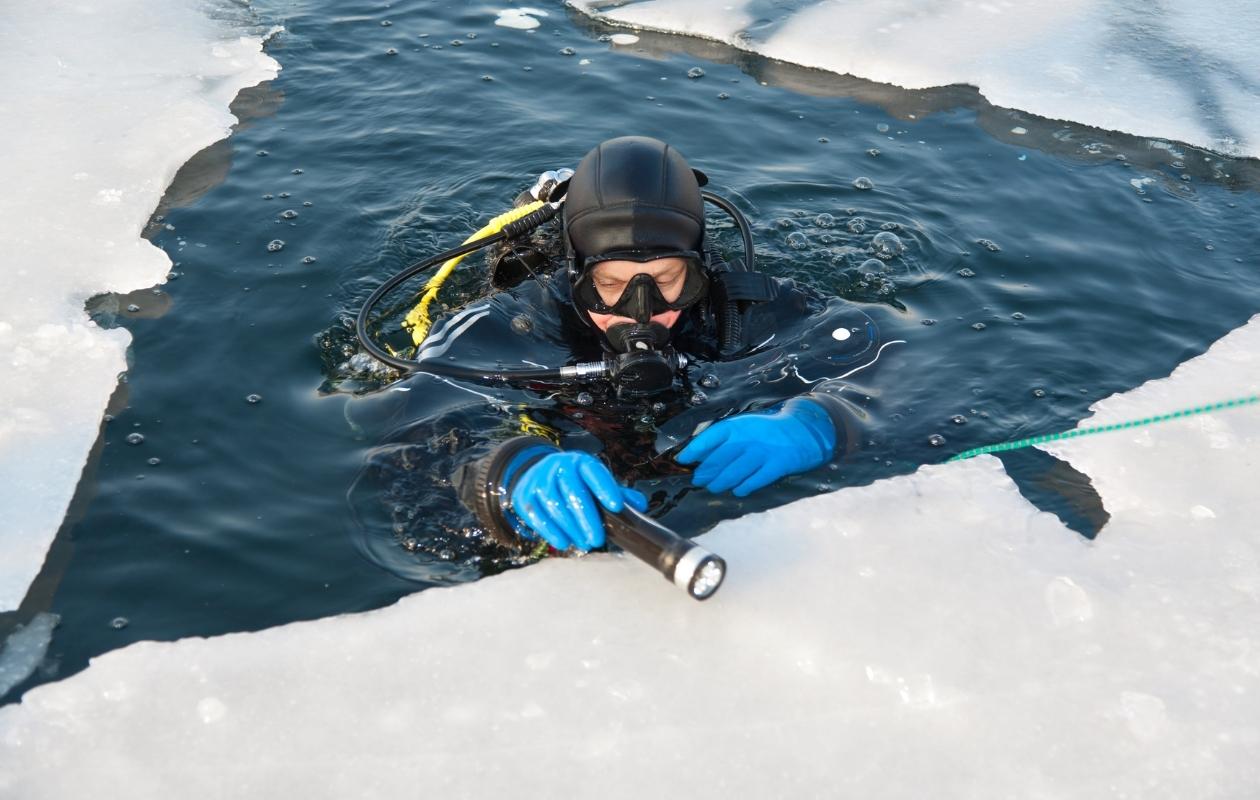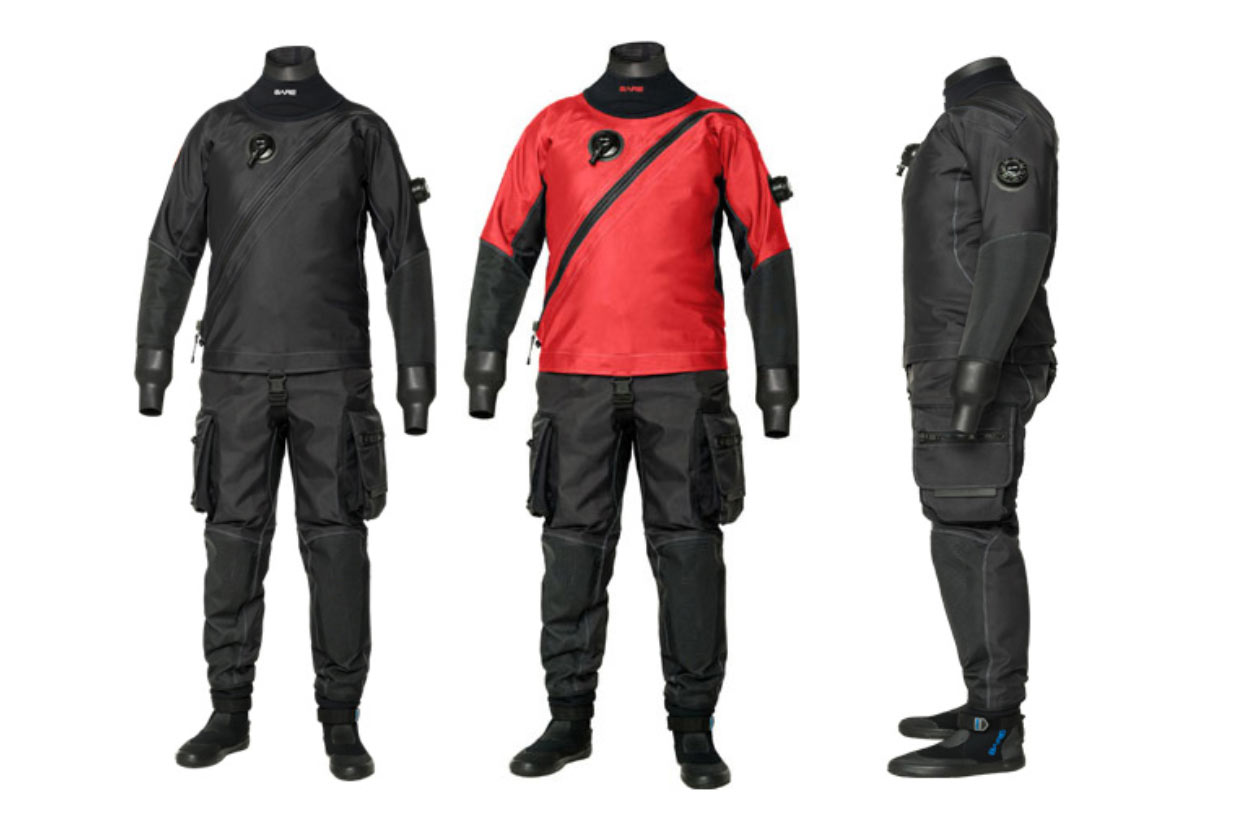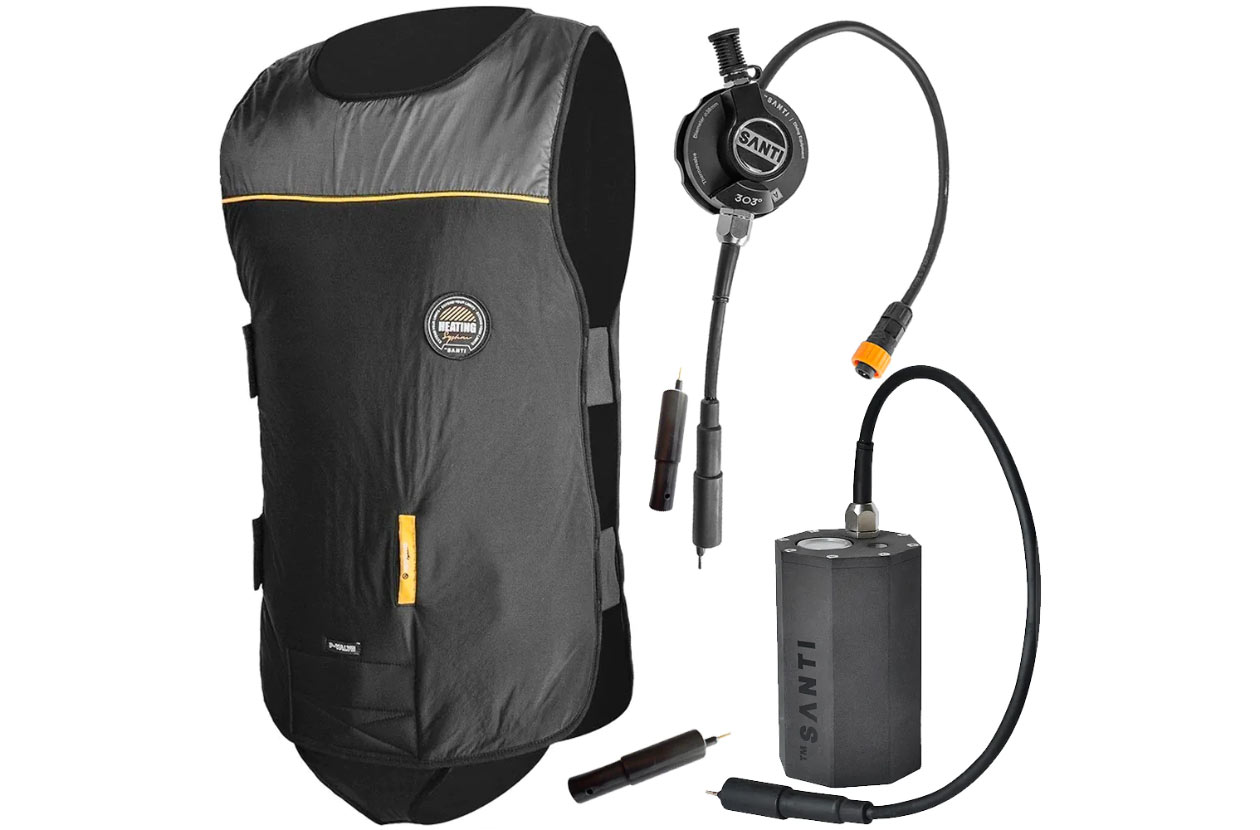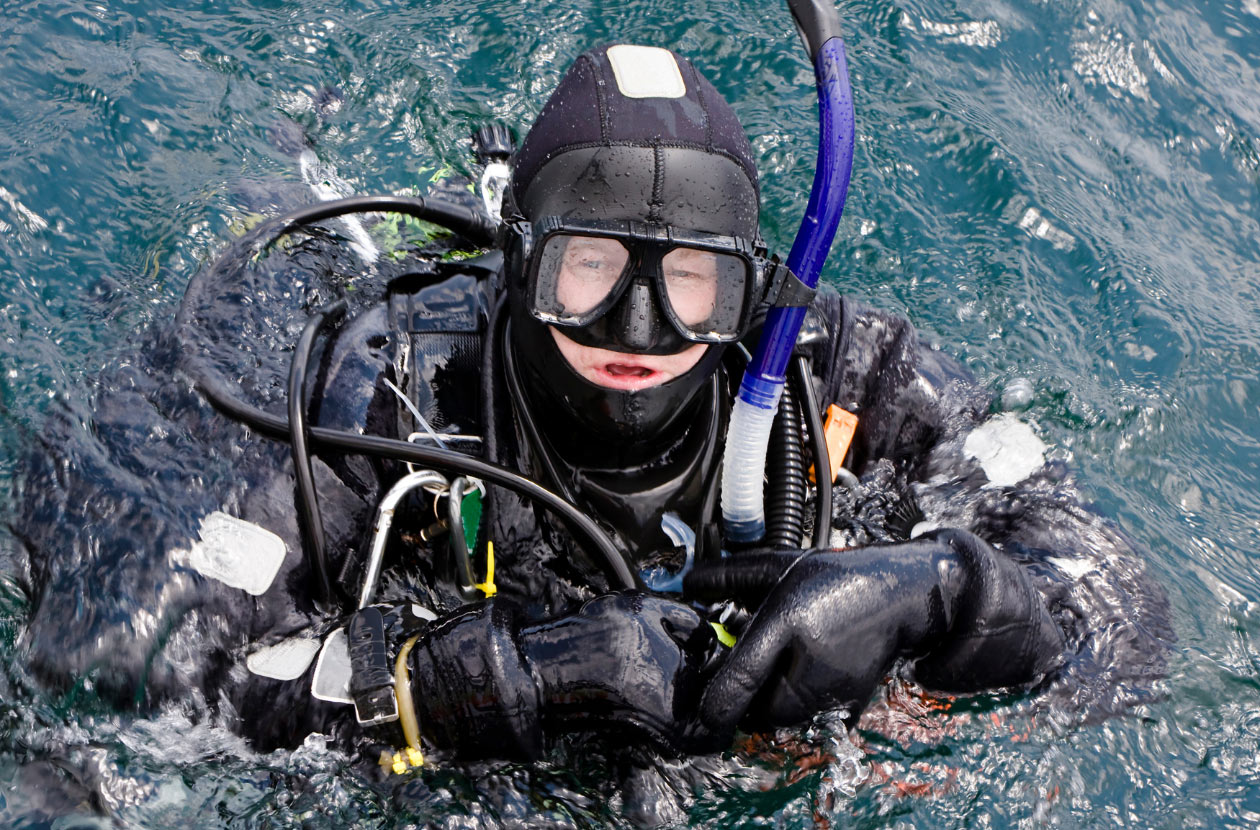Diving in cold water? Doesn’t that sounds crazy? After all, diving should be a pleasure and a nice feeling, not a struggle against the cold and the chill entering everywhere. And yet… diving in cold water can give you experiences that you won’t get in warm, tropical waters.
But how do you get down to the business of cold water diving so that it is rewarding and memorable, rather than an unsafe madness? It requires a slightly different approach to preparation, and that’s the topic we’ll talk about today.
Cold water diving
Cold water diving refers to diving in environments where the water temperature is much lower than average. It involves exploring underwater regions such as lakes, rivers and oceans in colder climates or during colder seasons. If you want to get into the fun of this type of diving you need to be prepared for new challenges, and not just those associated with lower water temperatures. Despite the challenges, cold-water diving offers unique opportunities to explore diverse aquatic ecosystems and appreciate the beauty and tranquility of underwater landscapes with good visibility. It is a truly different experience than diving in warm water.
Can you scuba dive in cold water?
Of course! Scuba diving in cold water is a thrilling and unique experience that allows divers to explore the wonders of underwater environments in colder regions. While the temperature of the water may be lower compared to warmer dive sites, it doesn’t prevent divers from enjoying the underwater world.
Cold-water diving often requires additional preparation and equipment to ensure safety and comfort. You will need to wear specialized exposure protection, such as drysuits or thick wetsuits, to maintain your body temperature and protect yourself from the cold. Generally you will have to prepare well for this.
Why scuba dive in cold water?
Diving in colder regions offers the opportunity to explore unique underwater environments that may differ significantly from warmer water dive sites. These areas often feature stunning kelp forests, fascinating geological formations, and a rich diversity of marine life adapted to colder temperatures. Another aspect in favor of cold water diving is that it is demanding. Overcoming these challenges and successfully diving in lower temperatures can be extremely rewarding and boost your diving confidence.

In cold-water diving, visibility can sometimes be excellent due to the absence of algae blooms or other factors that may affect water clarity in warmer waters. This can offer breathtaking views of marine life, kelp forests, and geological formations. Diving in cold water may also provide opportunities to encounter unique marine species that thrive in these colder environments. From colorful cold-water corals to various fish species, the underwater ecosystems in cold-water regions can be rich and diverse.
Of course, it’s important that you undergo adequate cold-water diving training beforehand. This includes understanding the potential dangers of lower water temperatures and knowing how to deal with them effectively. With the right equipment, knowledge and experience, cold water diving can be an amazing adventure for enthusiasts seeking new underwater experiences.
Equipment for diving in cold waters
Cold water diving equipment is not significantly different from “regular” equipment, but of course, as always, the devil is in the details. First of all, while cold-water equipment can be used in warm water, equipment unsuitable for low temperatures will have no use here. This is a very important issue that has a direct impact on your safety during the dive. So what equipment differences do you need to consider?
Good exposure suit
The first issue is the protective layer, or outer suit. While you can even dive naked in warm water, it is unlikely to be an option in cold water. Can an regular wetsuite apply here? Yes… As long as you are tough enough. However, I would suggest a drysuit and a good undersuit to keep you warm. Remember, however, that drysuit diving requires additional training. The air in the suit affects buoyancy, so you need to know how to handle it. And it will definitely require some practice, because a drysuit acts differently underwater than a regular wetsuit.

Cold water regulator
Not every diving regulator is suitable for cold water. What you use in tropical waters you can leave at home, because it will not work in cold water. It will freeze even before you take it out of the car… It is very important to equip yourself with a scuba regulator designed and approved for use in cold waters. Otherwise, a serious accident or death can occur when the internal components of the regulator freeze and simply stop providing breathing mixture.
Warming vests
A great addition to the warmers are heating vests, which have an electric heating system. Thanks to it, we can independently and safely regulate the temperature of the warmer underwater. Their advantage is that they can be used as needed. When we want to dive longer and in colder conditions we simply add them under the drysuit. Such products are designed and made with the utmost precision. They guarantee 100% safe use even in case of flooding. They can be successfully used even in the most demanding thermal conditions.

Thermoactive underwear
Another important item to keep in mind when diving, not only in winter, is thermal underwear. It has both thermal insulation and ventilation properties. It provides maximum comfort to the skin by wicking excess moisture to the outside, which prevents sweating and, as a result, faster cooling. We can wear thermal underwear directly under a neoprene drysuit or under a warming pad. It all depends on what level of insulation we need and how we tolerate low temperatures ourselves. But believe me, stripping down to “naked” before and after a cold dive is no fun. So it’s a good idea to have that thin but warm layer on from the moment you leave home.
Additional accessories for cold water diving
The necessary equipment for cold water diving is not limited to what you use in the water. It’s important to bring a warm and windproof coat that can be conveniently worn over your chosen exposure protection. Don’t forget to bring a hat and gloves to keep your head and hands insulated. Taking care of your feet is crucial too. After removing the drysuit, it’s unpleasant to have your feet get wet from any remaining water on the boat or shore. It’s recommended to have an extra pair of warm socks and dry shoes readily available. Your feet will appreciate the extra care and warmth.
How to prepare for cold water diving?
You probably already understand that this type of diving is not for everyone, and even if you have a lot of experience, here you will need additional preparation. Not only your diving equipment, but also your plan and your mental attitude will be important.
Before diving in cold water
Before jumping into the water, think about whether you really want to do it. Remember that there is no room for foolish risk-taking in diving and you don’t have to prove anything to anyone. However, if you are sure you want to do it, check your equipment first. Is it in working order, serviced and suitable for the conditions. But beyond that, prepare answers to all these points:
-
Do you have the proper training? Cold water diving may have unique considerations and potential hazards. It’s essential to receive proper scuba training and certification in cold water diving techniques and safety procedures. This will equip you with the necessary knowledge and skills to handle the challenges specific to colder environments.
-
Do you have a dive plan in place? Thoroughly research the dive site and its conditions. Understand the water temperature, currents, visibility, and any specific risks associated with the location. Plan your dive accordingly, taking into account the duration, depth, and potential hazards you may encounter.
-
Do you have the right suit? Choose the appropriate exposure protection for the water temperature. This can include drysuits, thick wetsuits, or a combination of layers depending on personal preference and the conditions you will be diving in. Ensure the exposure protection fits well and provides adequate insulation to keep you warm during the dive.
-
Do you have the right parner? Always dive with a buddy, especially in cold water conditions. Having a dive buddy provides an extra layer of safety and support in case of emergencies or unexpected situations. Maintain good communication and establish a pre-dive plan with your buddy.
-
Do you have emergency procedures in place? Review and adhere to cold water safety procedures, such as proper ascent rates, emergency protocols, and buddy checks. Familiarize yourself with cold-water-specific risks, such as hypothermia, and know how to prevent and manage them.

After diving in cold water
Your body’s reaction to the cold and to the extra adrenaline can be different. Don’t go crazy with dive times or depth. Once out of the water, dress warmly and protect yourself from cold air or wind. Rest properly and eat. And if you enjoyed diving in cold water, come back another day for more.
Want to try diving in cold water?
Any kind of diving is great and opens up new horizons, as do diving expeditions to different parts of the world. If you want to join cool expeditions and try something new, be sure to check out GoExploreWith.me.

Cold water diving – let’s recap
So what? Diving in cold water doesn’t seem so crazy anymore, right? You can try it and expand your horizons. I had the opportunity to dive in water of 3 degrees Celsius and let me tell you, it impressed me. Especially since at the time I was diving in a wetsuit, not a drysuit. But that’s why I love my drysuit even more since I bought it….



